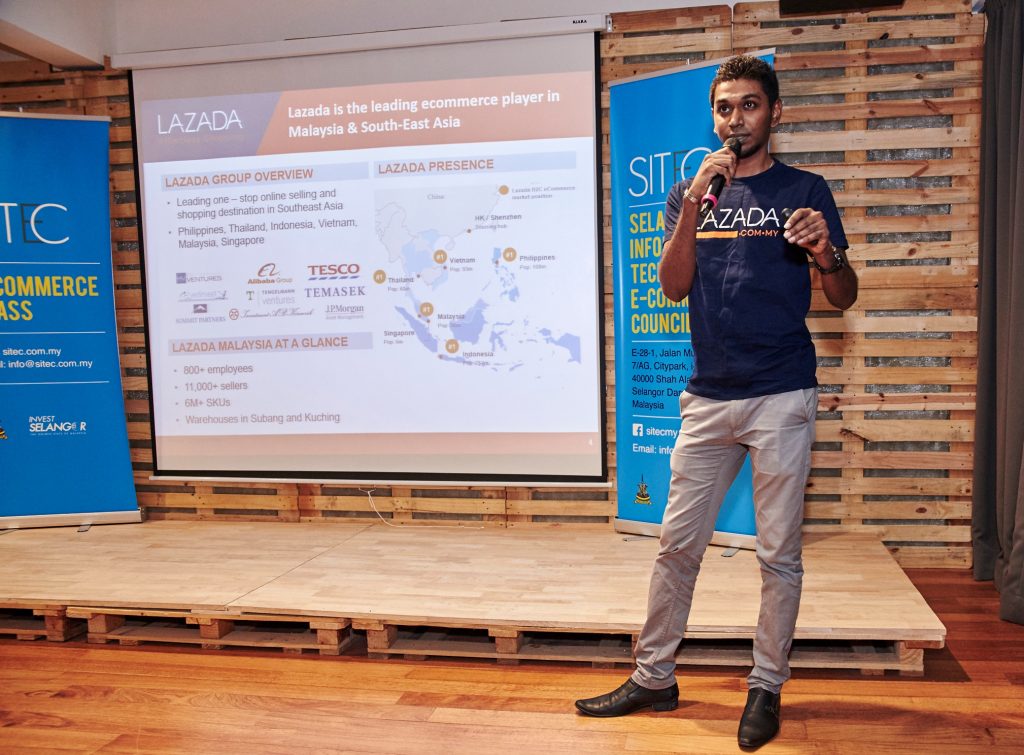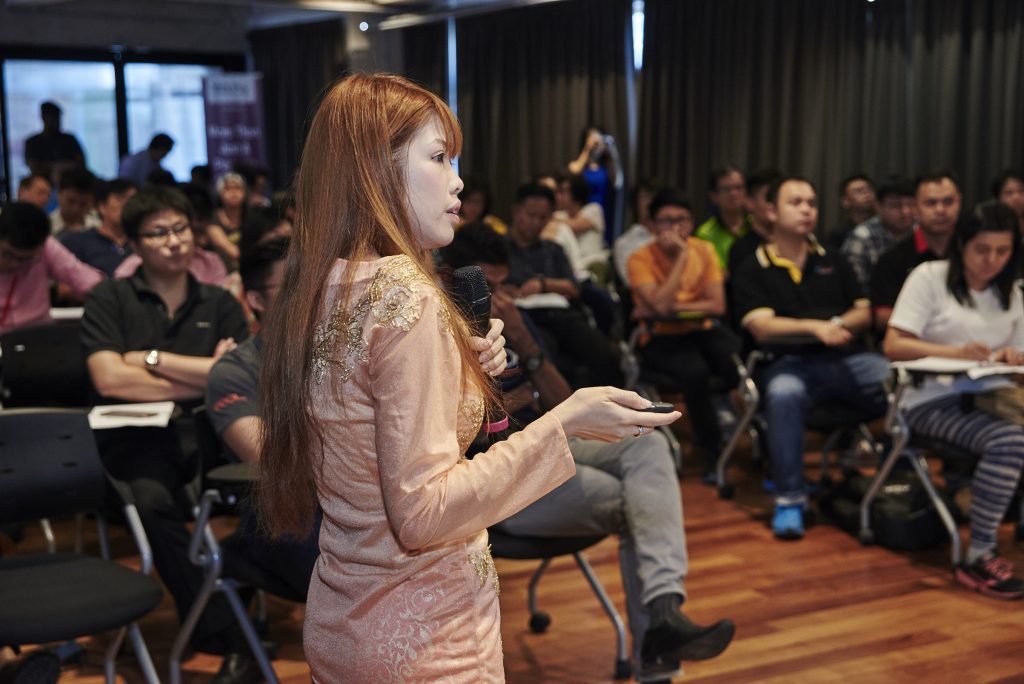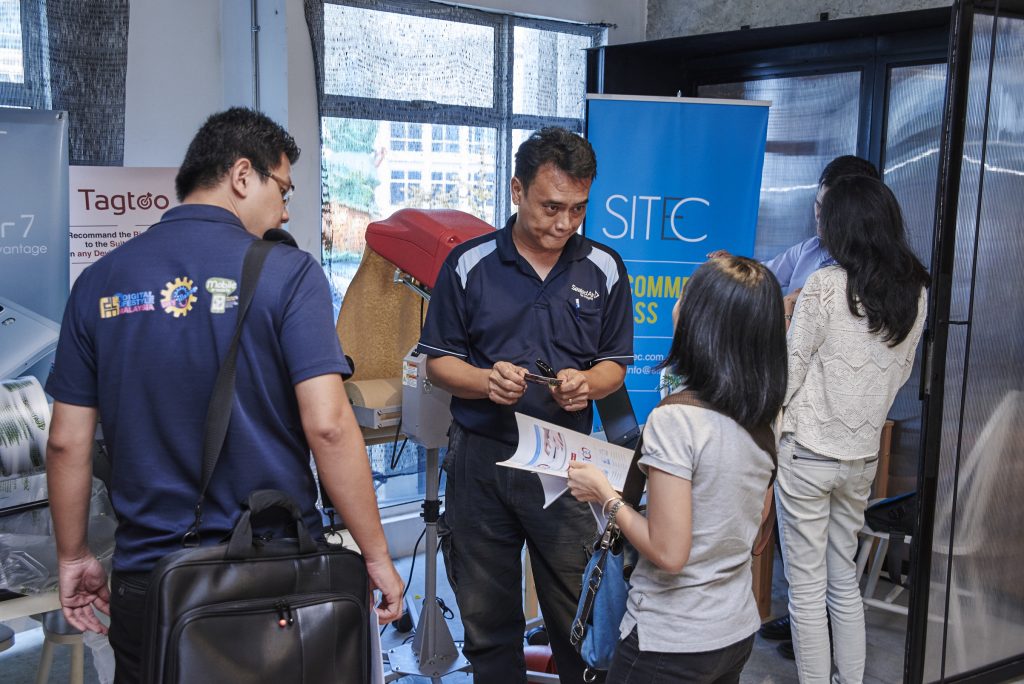The E-Commerce Class about CRM and Customer Service, held on June 7th, drew a crowd of 88 participants, with a large number of first-timers. The speakers of the day spoke about the importance of customer relationship management (CRM) and customer service, including the examination of a case study of a recent case.
The first speaker was Amirul Shah of Lazada Malaysia, who introduced Lazada’s CRM called Salesforce to the participants, and spoke about what a CRM tool should ideally do, such as provide a means of viewing the lifelong history of a customer, to be able to maintain the customer.

Amirul Shah, Sales & Business Intelligence Manager of Lazada Malaysia
“Salesforce is the backbone on which Lazada builds up its numbers, and it is how we contact our leads and accounts. By providing automation, it allows a clear overview of the data to be seen,” said Amirul.
Amirul went through examples of what Salesforce, a CRM tool, could do. One of Salesforce’s strengths lies in showing complete customer data in the form of easily understandable charts and graphs. Additionally, it tracks histories of customer communications and importantly, customer buying behaviour.
The second speaker was Kayel Lee, the founder of MooCommerce, and he spoke about some of the best practices for customer service.
“Price is a factor, but not the only factor. Branding is another factor, but the most important is customer service, in providing the best customer experience overall. Customer service is an art, a skill, that is perfected over time. There is no right or wrong answer. Learn from your customers, and listen to them,” said Lee.

Kayel Lee, Founder and Chief Executive of MooCommerce
The tips he offered included reducing customer service, which was to make the product listing and description so clear that there would be no need for the customer to inquire.
However, he also noted the importance of a well-trained team to handle customers.
One particular tip he had to give was for merchants to say sorry, even if it was not their fault. This helps to calm the customer, and is a show of empathy for the difficulties of the customer.
He also stressed the importance of prompt responses to customers, as well as the need for a CRM tool. He then took the participants through a short case study of the recent Maxis case.
The third speaker was Michelle Chuah, the founder of Supermodel’s Secrets, who spoke about how customer service was one of the keys to brand differentiation.
“Customer service happens before, during, and after the purchase is made, and can be the difference between losing and having a loyal customer. Communication and meeting customer expectations are some methods of providing customer service, and the personal touch is always appreciated,” said Chuah.

Michelle Chuah of Supermodel’s Secrets
She then spoke about cart-abandonment, and how it was a major problem across e-commerce. She attributed it to a number of reasons, such as shipping costs, customers not being ready to purchase just yet, the high cost of the products, or a lack of convenience. She suggested a number of ways to convert cart-abandoners to customers, such as automated email reminders, or even manual reminders. Here she suggested that a personal name be used as the name on the email, rather than an email that says it is from admin or customer service. This lends a personal touch, while raising the opening rate.
Additionally, she also stressed the importance of having multiple points of communication for ease of contact, as well as the importance of after-sales service and rewarding customer loyalty.
She also pointed out that social customer support was preferable to traditional customer support, hence the effectiveness of a livechat function on the store page. Rather than facing pre-recorded options or listening to the recital of a script, she noted that customers preferred the personal touch.

SealedAir demonstration
At the end of every EC classes, SITEC provides a market information section, which provides opportunities for merchants or service providers to share more about their products and services. This time round, representative from Sealed Air and Captv8 presented about their services, namely protective air packaging and livechat services respectively.
